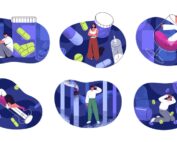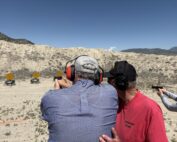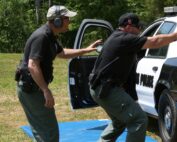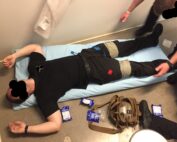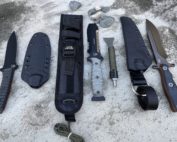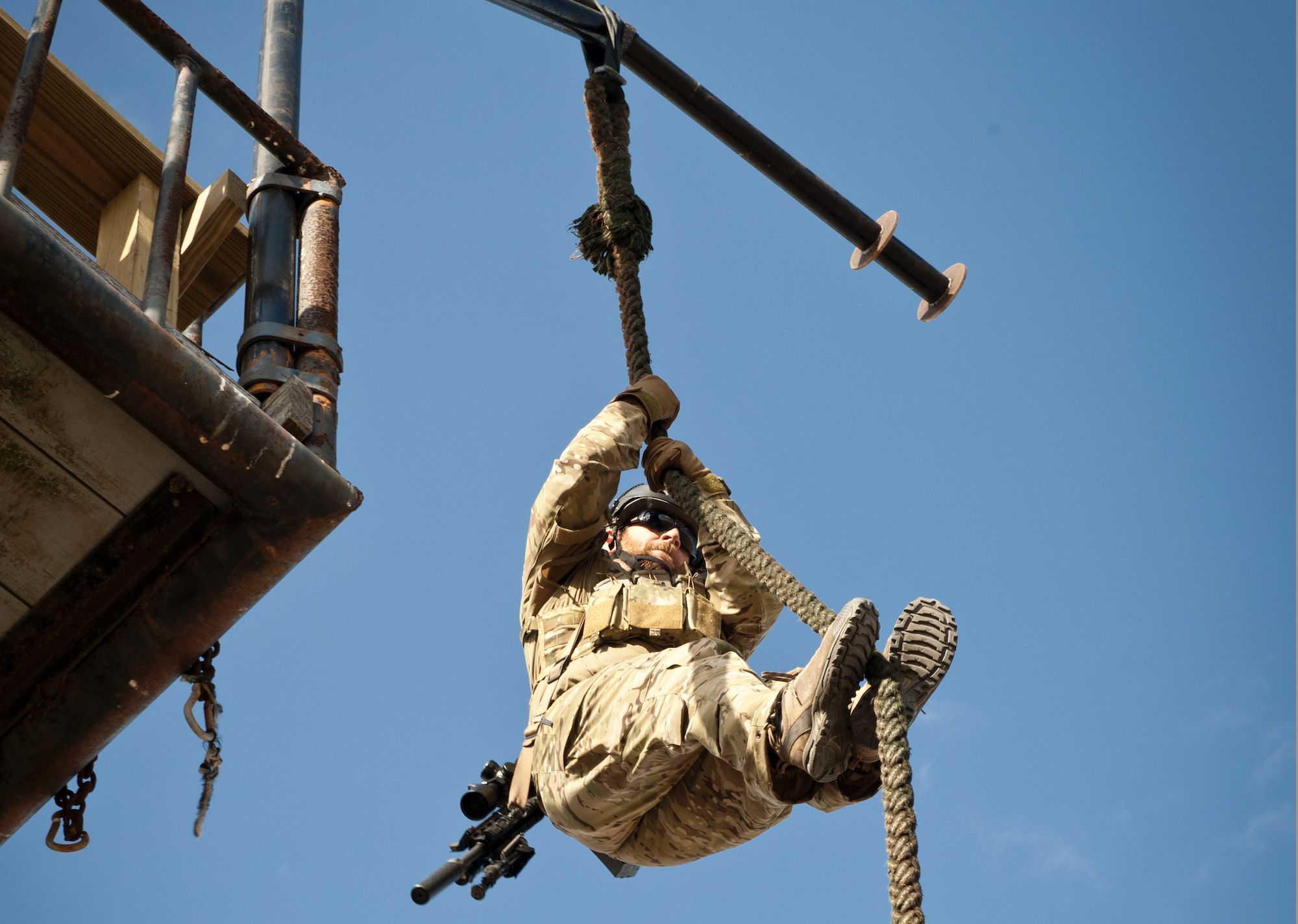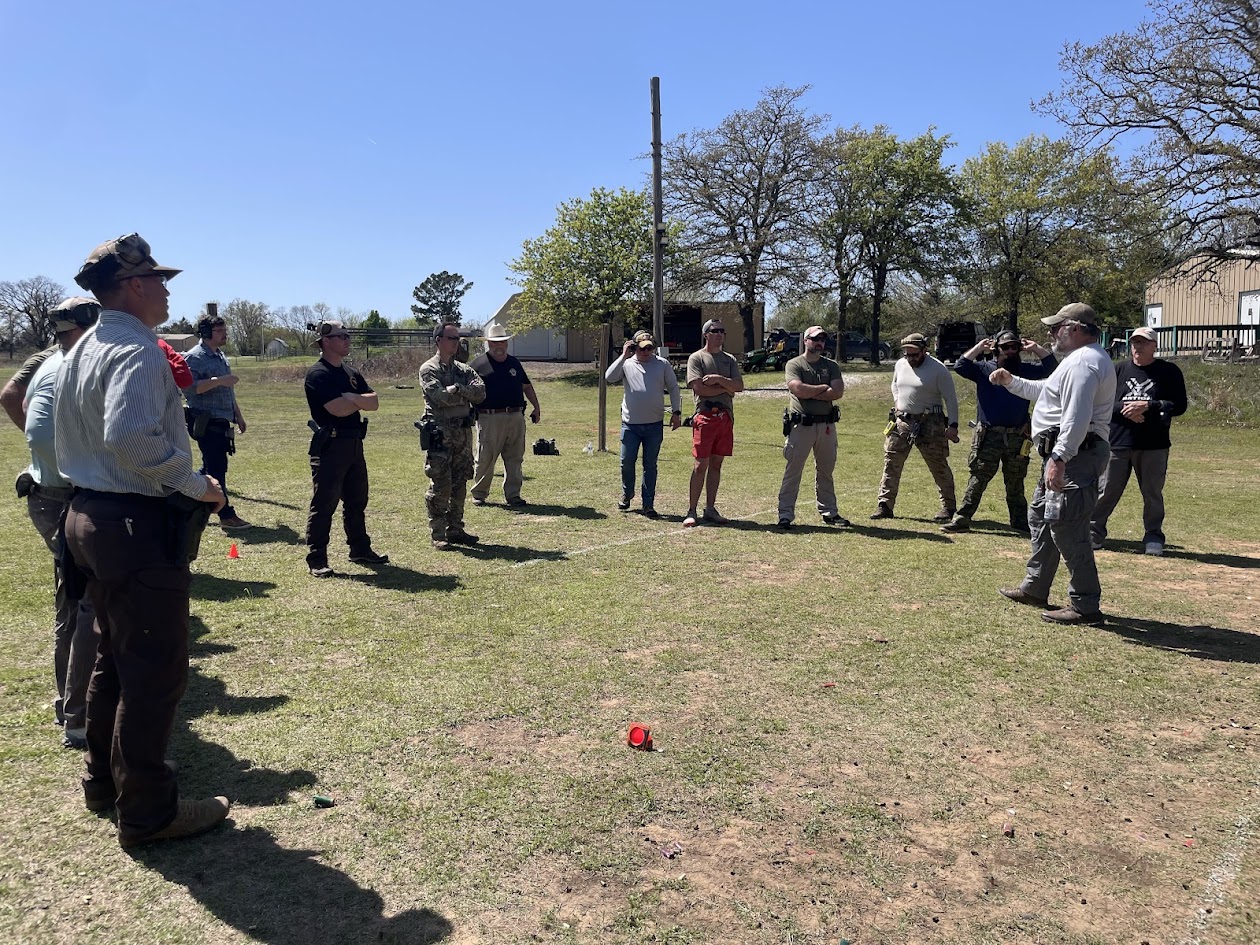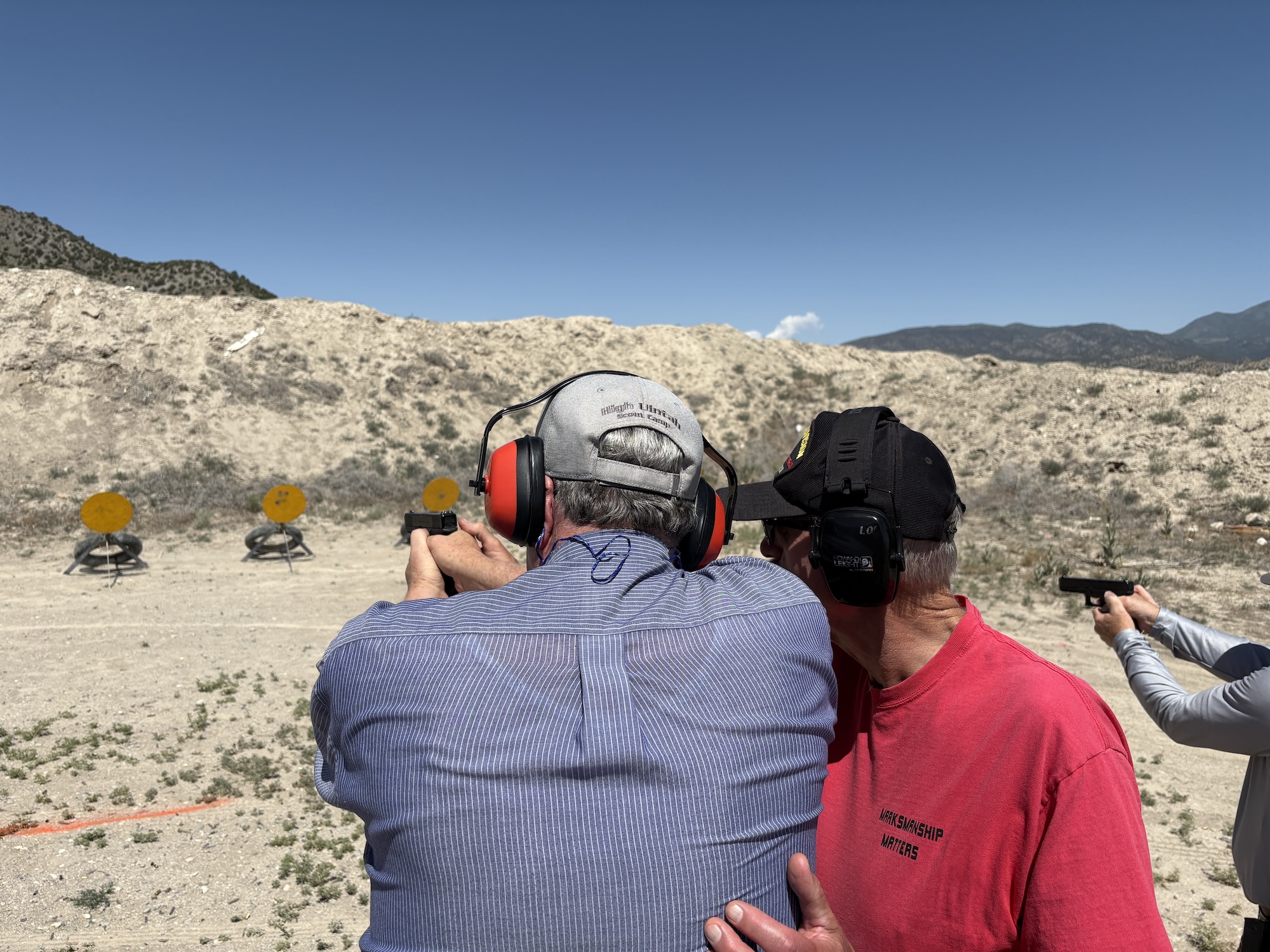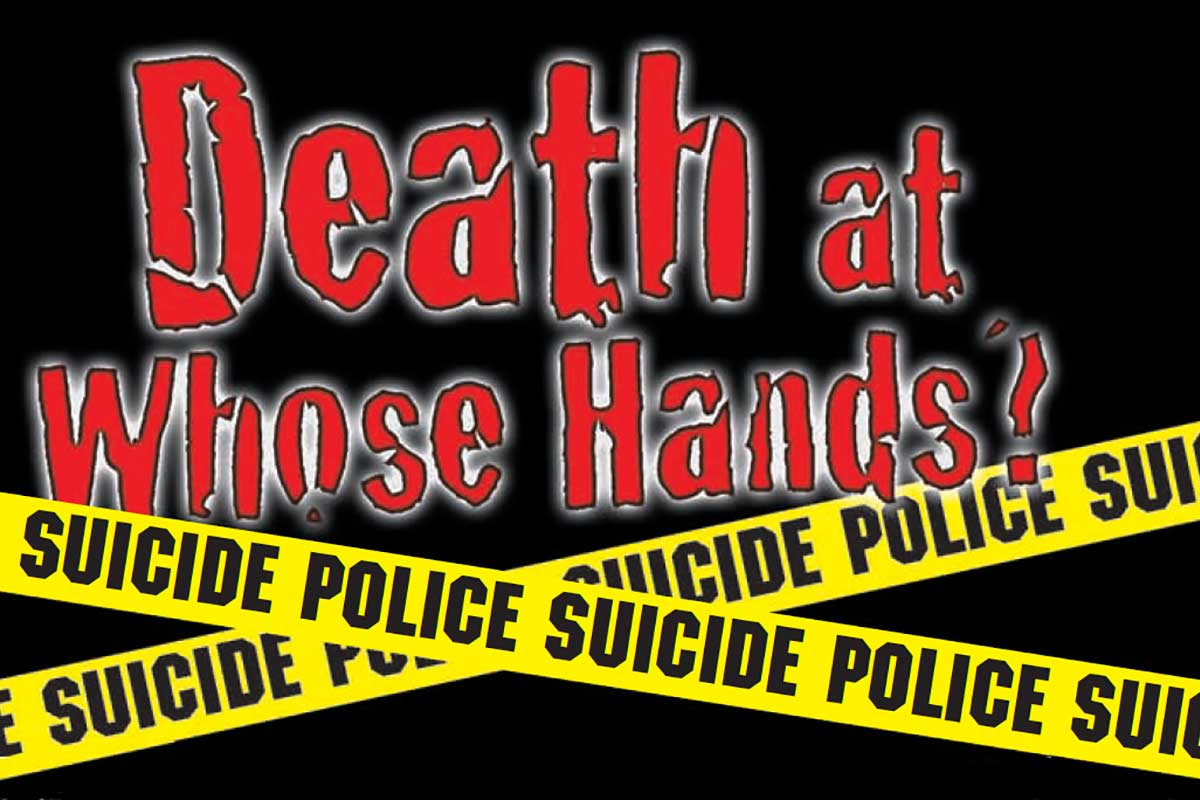
AC-DEATH-HANDS-LEAD-800
GOOD AFTERNOON MA’AM!
It’s day two of the police academy. I’m the shrink lecturing right after lunch. Great. I have an hour to talk to these shiny young faces about the toll a police career can take on their psyches. How to get their attention? Pop quiz time.
“On average, nationwide, how many police officers are killed each year in the line of duty?”
“400!” “250!” “800!” they shout out.
“Nope,” I answer. “An average of 65 law enforcement officers are killed by bad guys every year. Now, how many cops kill themselves every year?”
The answers come more slowly. I have to prompt them. “Come on, guess!”
“25?” “50?” they mutter, stumbling, feeling embarrassed a bit.
“Wrong again,” I tell them. “About 300 cops kill themselves every year.”
And it doesn’t end with retirement.
Retired cops have a suicide rate five times greater than the general population. The biggest danger you’ll face as a cop isn’t the bad guys. It’s you.”
They’re quiet. They’re somber. I have their attention.
BUT WHY?
What is it about being a cop that increases your suicide risk? Consider some predisposing factors.
You are very comfortable with, and have literally at your fingertips, the most lethal means of suicide — your gun. For the rest of us a gun is kind of scary. We handle them rarely, and never point them at another human being. For you, it’s a tool you use every day, a tool you use to solve problems. When I first started working with cops 25 years ago some old-time officers had never pulled their guns out of their holsters in their entire careers. Now it’s a regular occurrence.
You are self-reliant problem solvers. Arrive on a scene, take control. Make the call, act on it. Unfortunately you do the same thing in your personal lives. When in despair over a failed relationship or a job setback, you make a lethal decision and follow it through, without checking it out with loved ones, or a mental health professional.
You’ve been to many suicide calls, ones that succeeded, others that didn’t. You’ve gone through the lethality learning curve. When cops attempt suicide, they succeed. You don’t take pills; you don’t turn on the gas in the oven. You shoot yourselves, in the chest or in the head.
You and a soldier are members of the only two groups of people sanctioned by our society to use violence to resolve issues. You are accustomed to thinking of killing as an option — albeit a very serious one — in your problem-solving repertoire. You drink too much and usually alone when you’re troubled. Alcohol is involved in the majority of police suicides.
You have perfected command presence. When you don’t want anyone to know what’s going on inside you, you can hide it perfectly. One police captain, who taught the stress class at the academy, stood on the dais at a policing conference in front of 200 people, introduced the chief of police, told her staff she had an errand to run, left and killed herself. This is the backdrop.
CHAIN OF EVENTS
” domestic violence, affairs (his/hers or yours), anything you perceive as being the end of your relationship can generate suicidal actions. If you are so distraught that suicide enters your mind, you may rationalize your loved ones will be better off without you, that suicide would be doing them a favor.
“When cops attempt suicide, they succeed. You don’t take pills; you don’t turn on the gas in the oven. You shoot yourselves, in the chest or in the head.”
Suicide has lifelong devastating effects on family members. Grief is complicated by feelings of guilt, shame and anger. Children whose parent committed suicide are at much higher risk to commit suicide themselves. That’s the real legacy left by suicide.
Next on the list is a major loss of face or status at work. Things like discipline, being passed over for promotion or having other officers know your personal problems can be a real blow to your self-esteem and make you feel out of control. Cops don’t like to be out of control. When you’re desperate and despairing, suicide can seem like exercising ultimate control over your life. It can represent the zenith of “screw you!” to all those who have hurt or mistreated you.
RELATED ISSUES
Suicides cluster in time and location. One suicide begets more. Less than 24 hours after the captain mentioned above killed herself, another officer on the same department killed himself. In a 10-year period, San Francisco had 10 suicides. San Diego had nine suicides in 12 years. In the same time period only two San Diego Police officers were murdered in the line of duty. Other departments report similar trends.
Relationship, career disappointment, and other suicides are triggering events. But you all experience these things, and most of you don’t even seriously think about suicide.
Try this scenario: You’re having a really tough time in your marriage, your spouse and kids have had it with you, and the feeling is pretty much mutual. Work isn’t going so well either. You’ve been passed over a few times for promotion and your performance is being scrutinized. It’s 0200, you can’t sleep, you’re halfway through a bottle of Jack Daniels, sad music’s on the radio. Your gun is right there on the table in front of you. Have another drink, it’ll numb the pain.
Alcohol. It lowers inhibition and impairs judgment. You think stupid things and are more likely to act on them. Alcohol is the lubricant that eases thought to action — with tragic results.
As a police officer you are three to four times more likely to die by your own hand than be killed in the line of duty. Yet from the academy through your police career you will spend hundreds and hundreds of hours honing your officer safety skills. How much time will you devote to keeping yourself mentally strong and healthy?
This is what I told those recruits at the academy: Keep yourself physically and mentally fit. Make your relation-ships with family and friends a priority. Develop a strategic stress management plan. Monitor yourself for feelings of depression and suicidal thoughts. Seek help at the first signs of emotional dis-tress. Do not drink alcohol while under emotional duress. Most law enforcement agencies provide some type of counseling and chaplain services. Find out what resources are available to you and use them.
Put the threat to your lives back out on the street where it belongs.


 (No Ratings Yet)
(No Ratings Yet)

